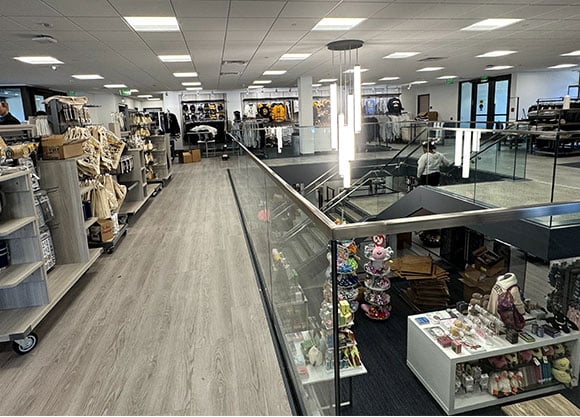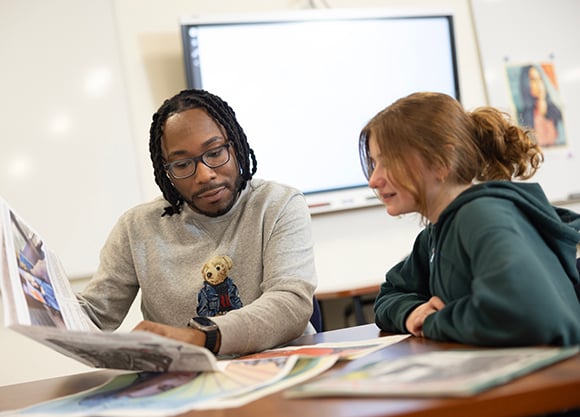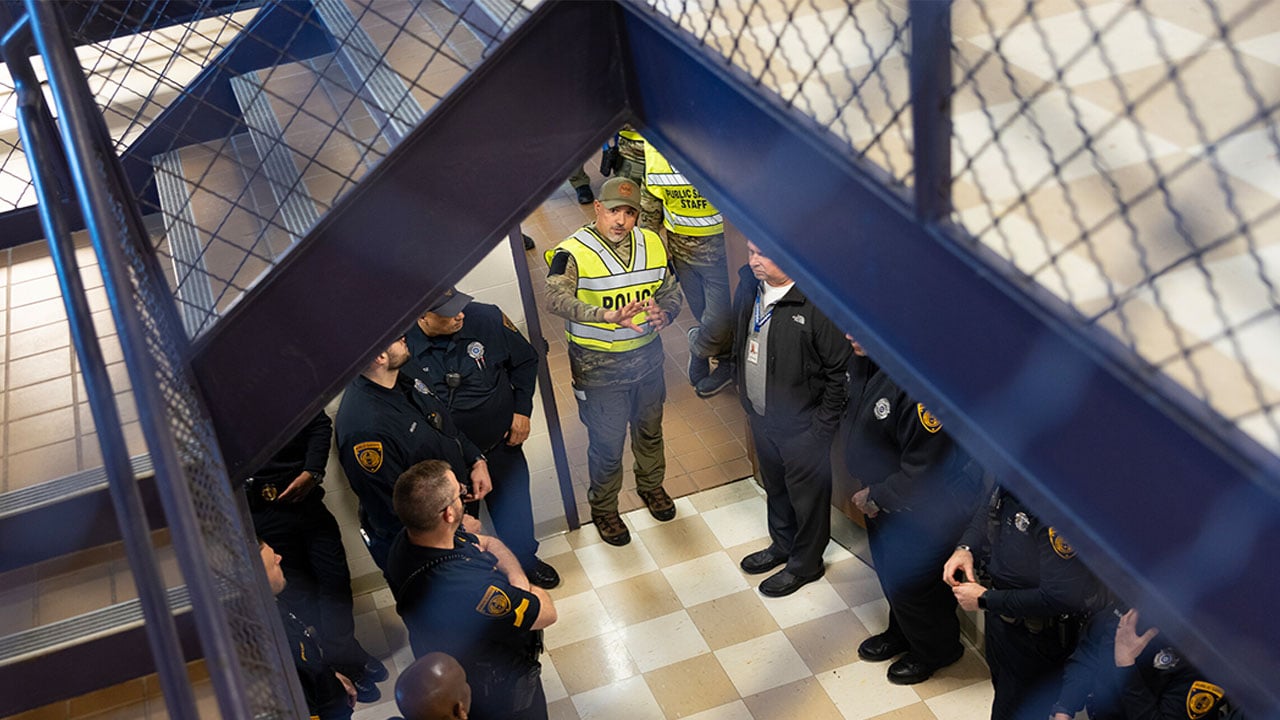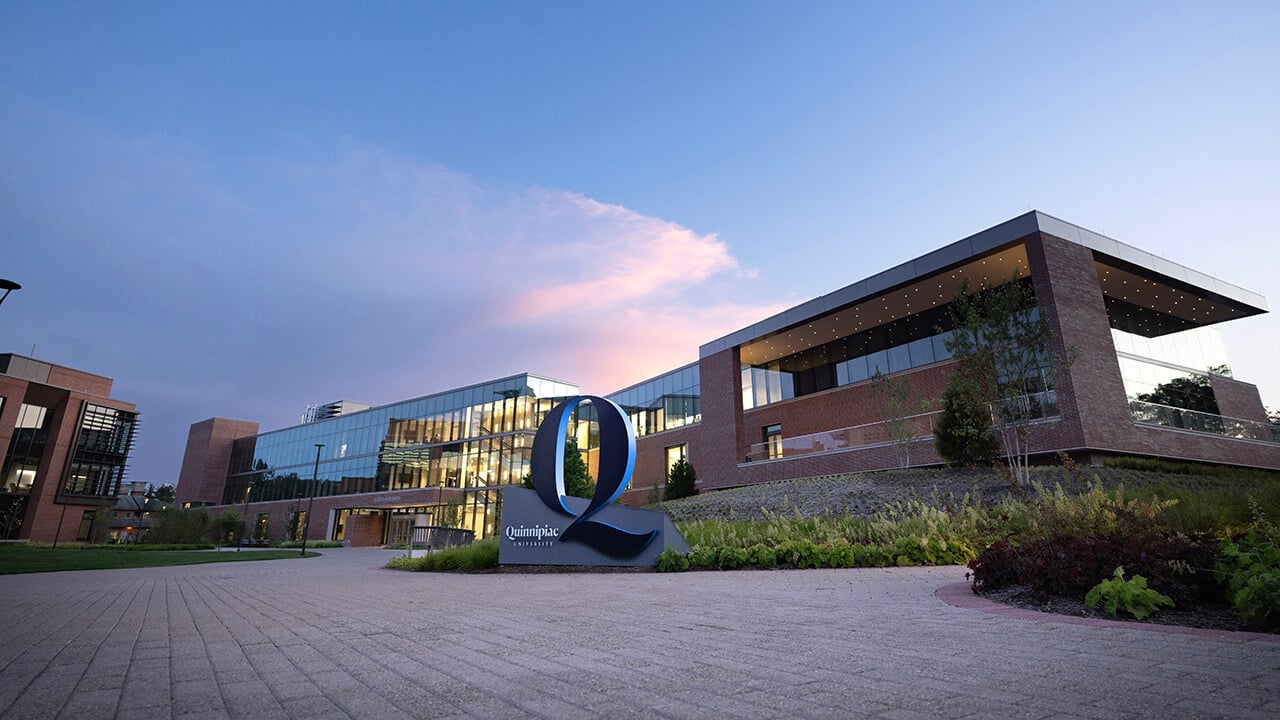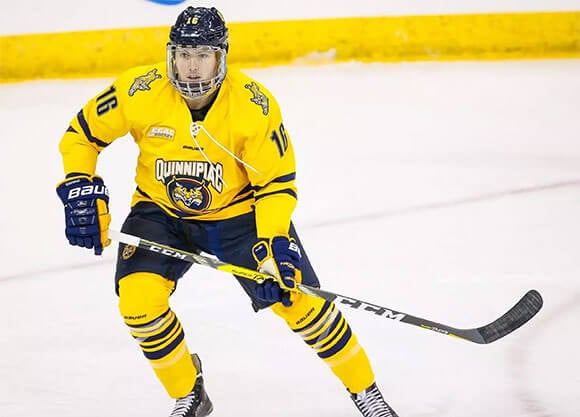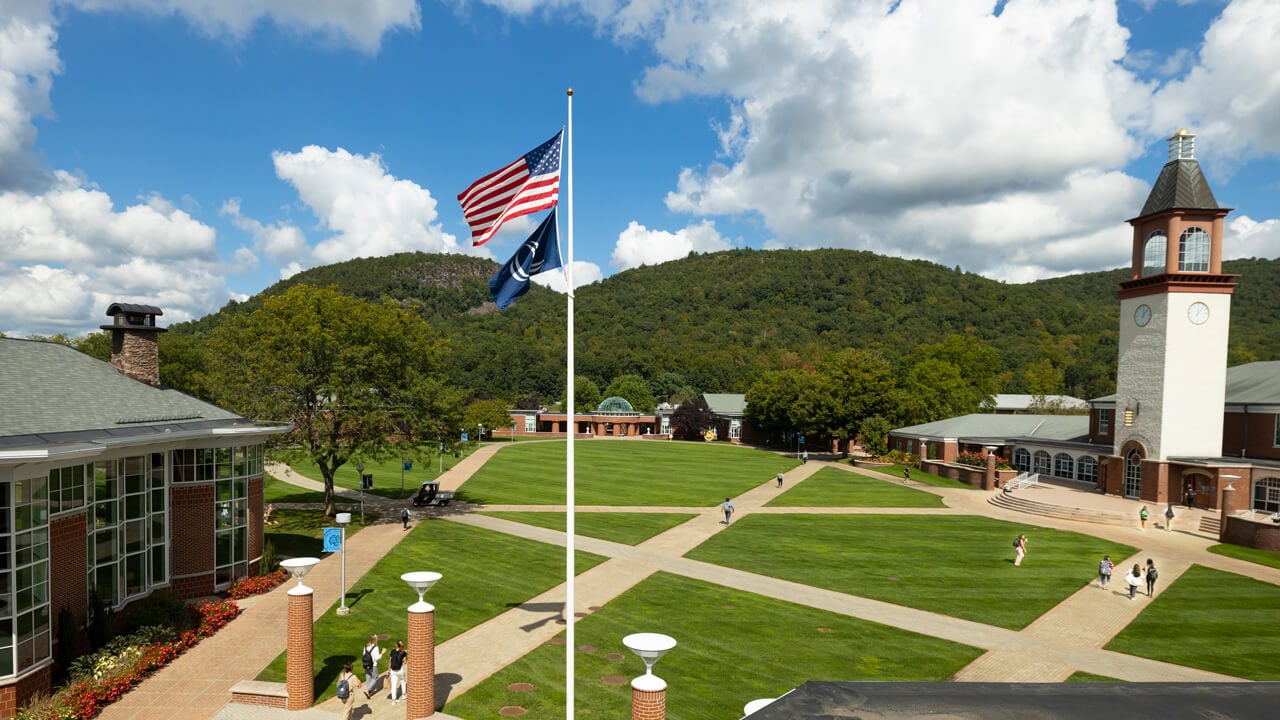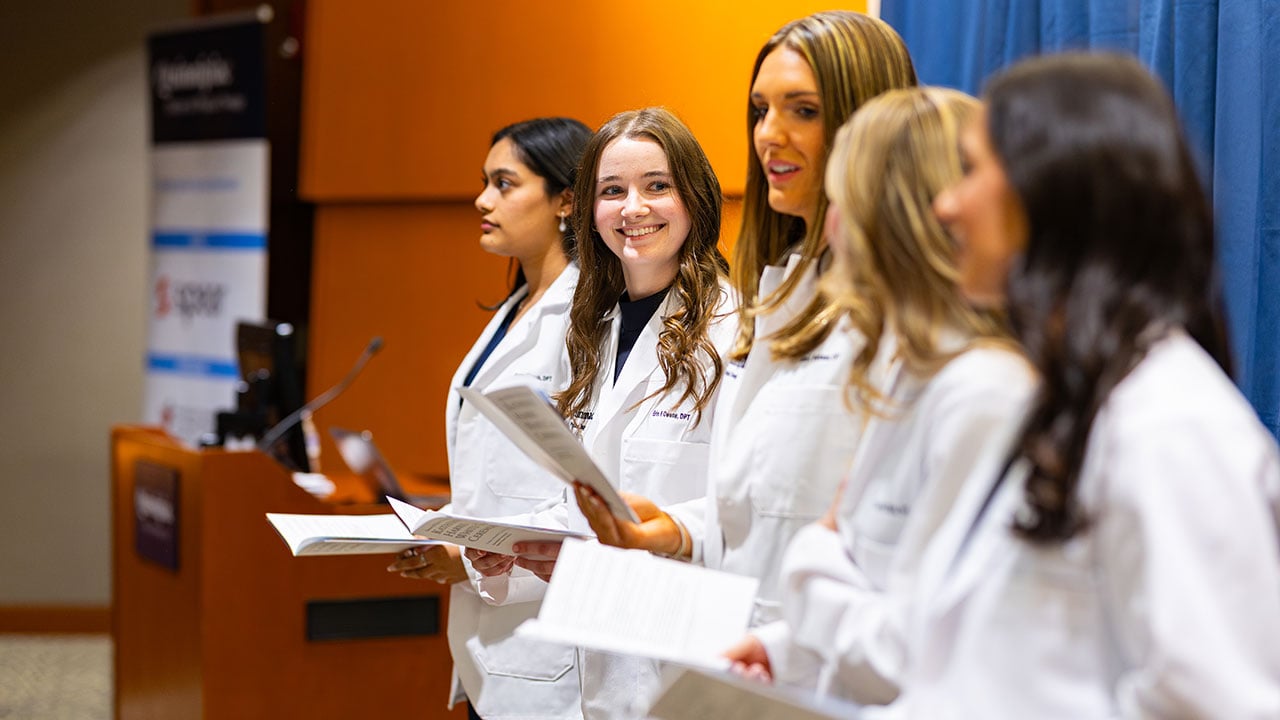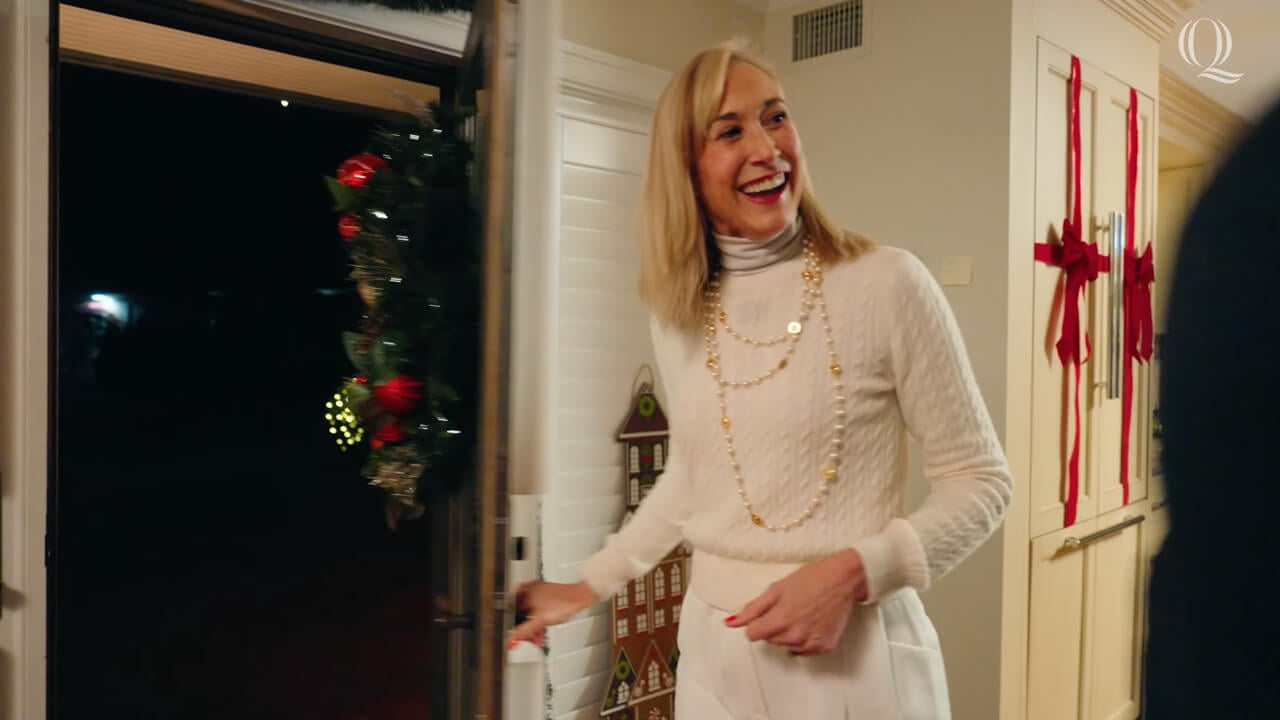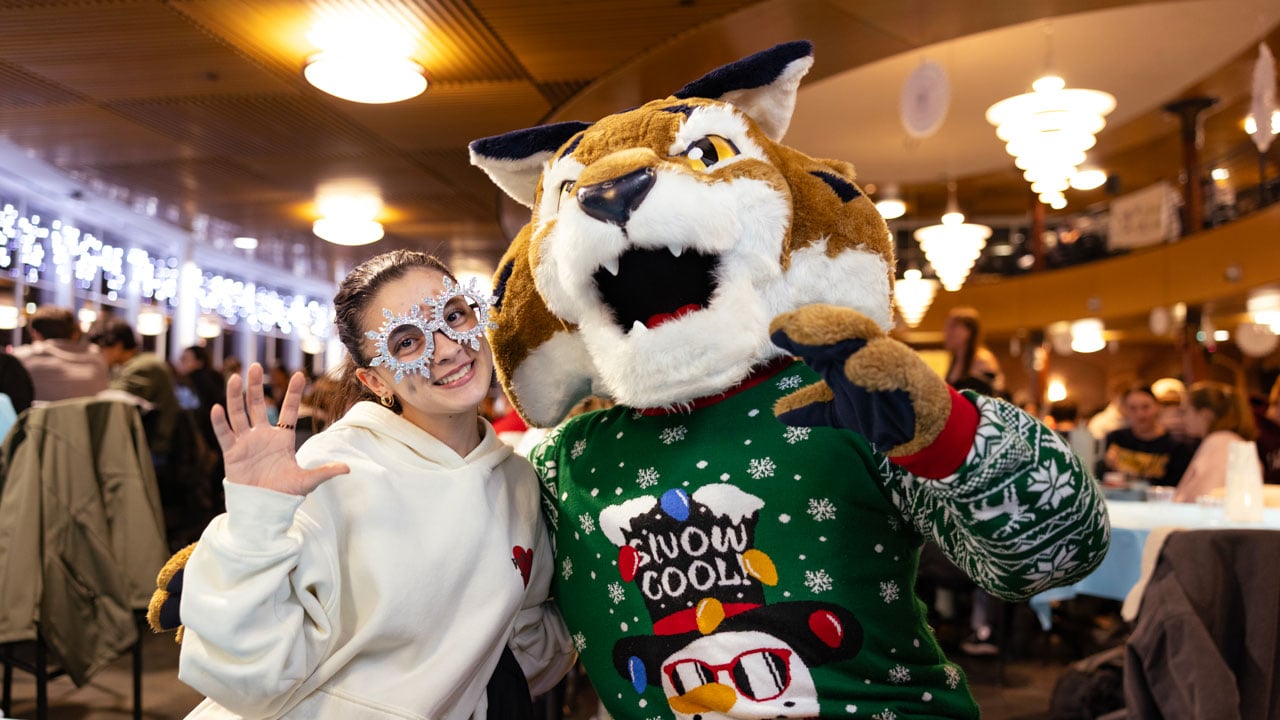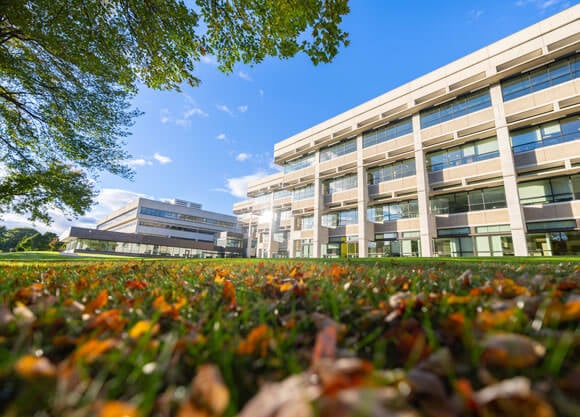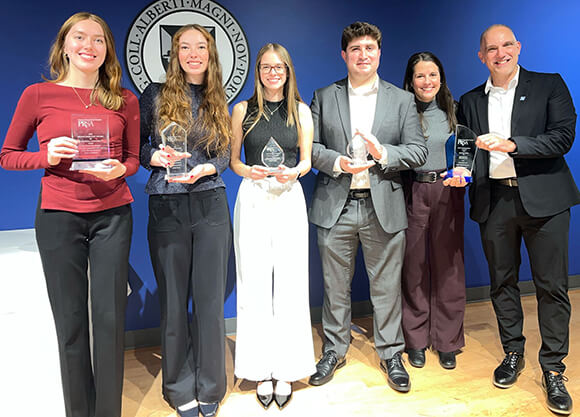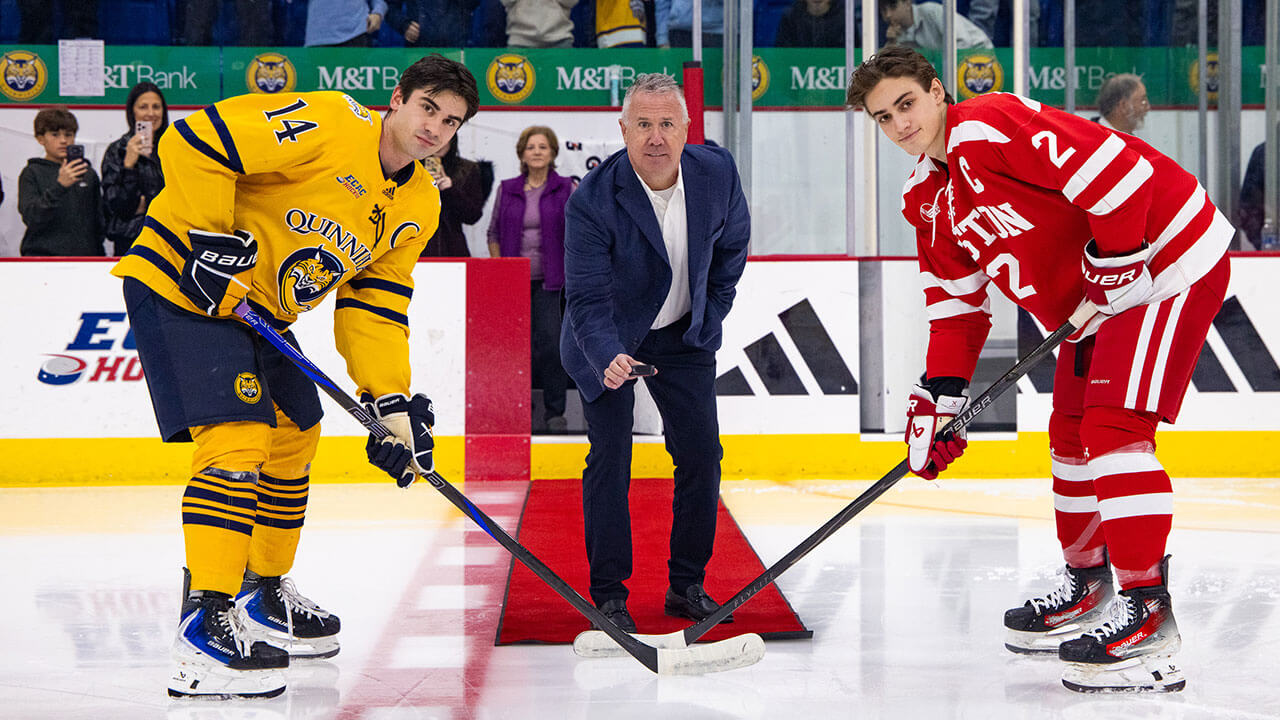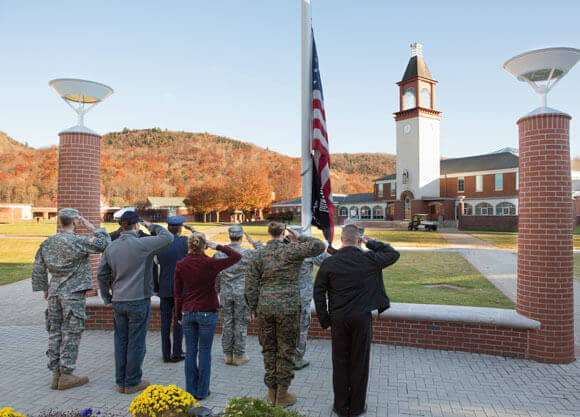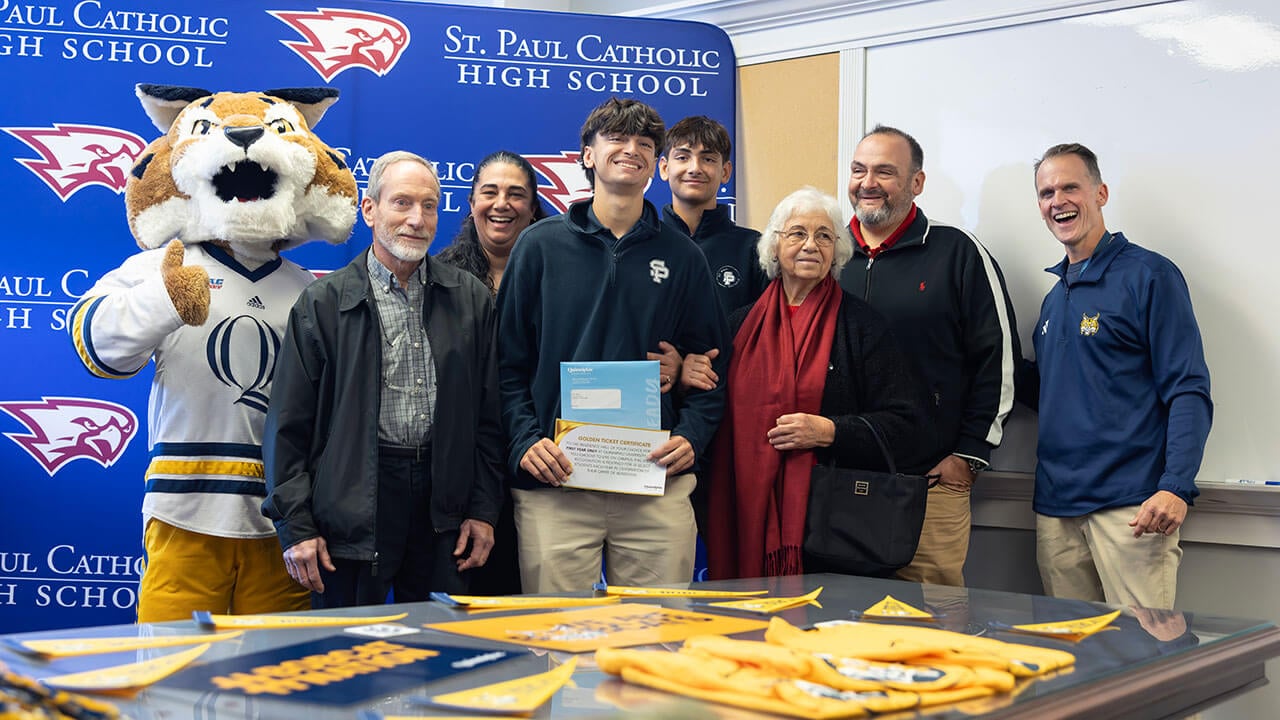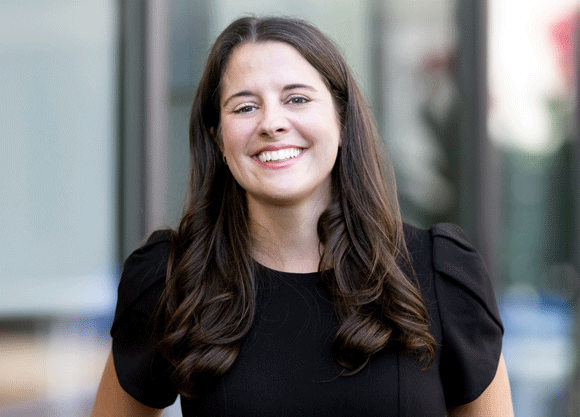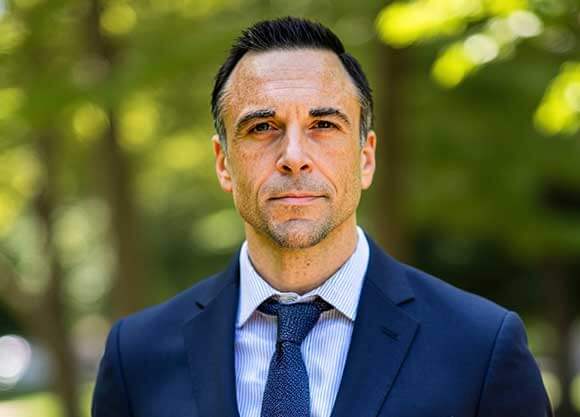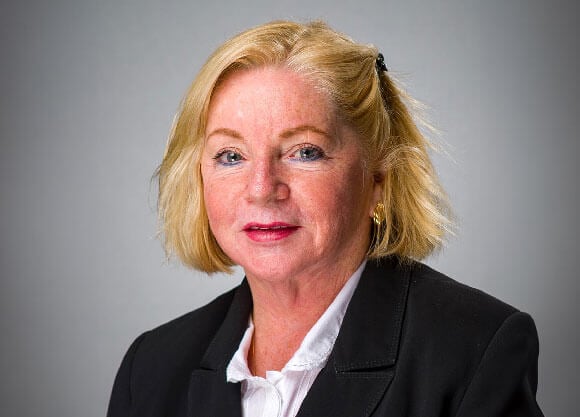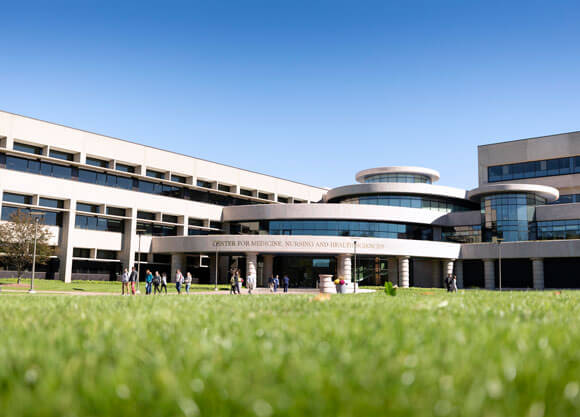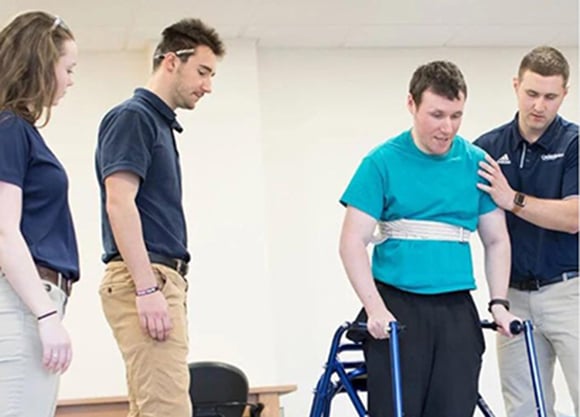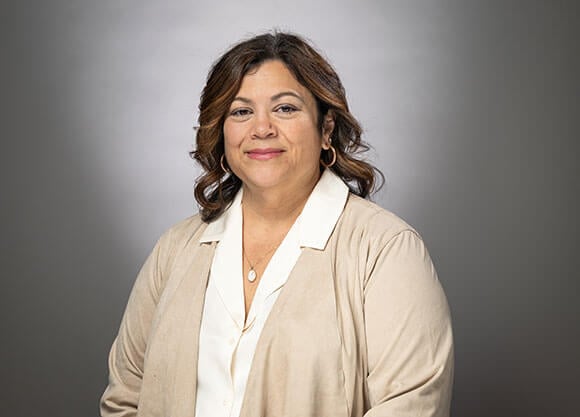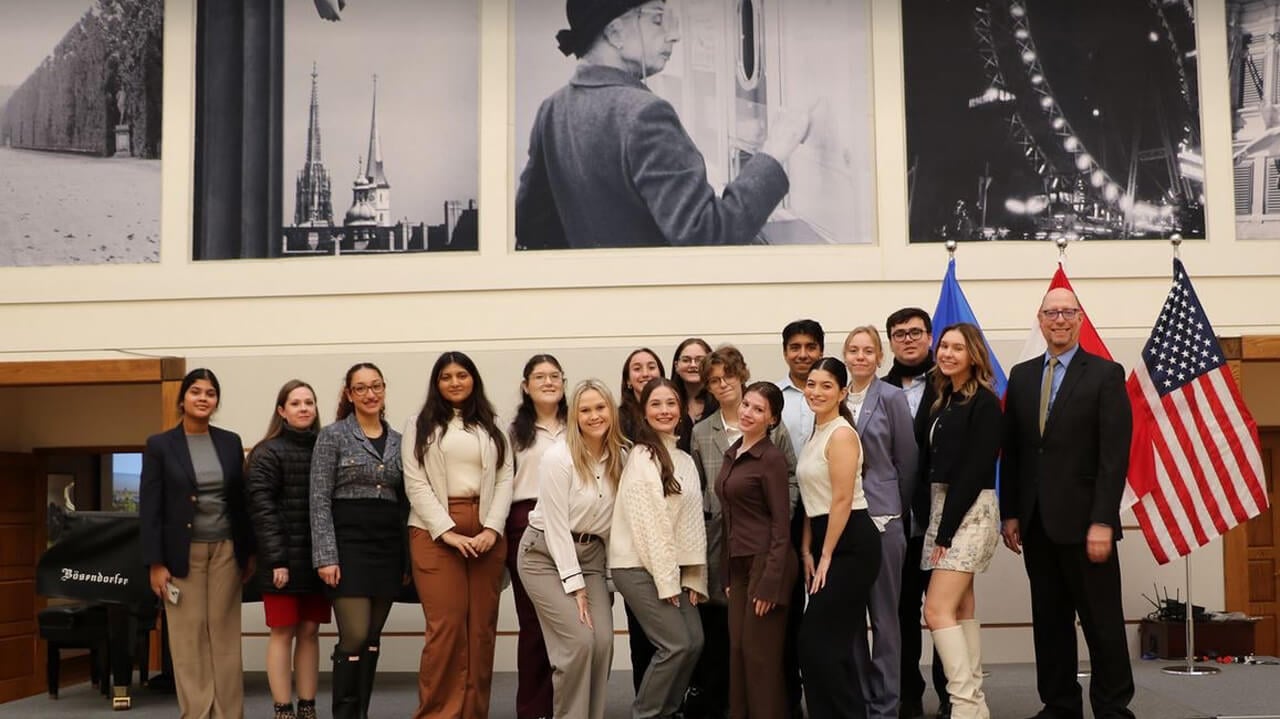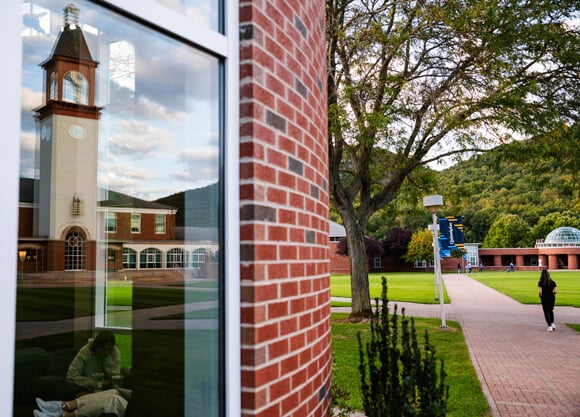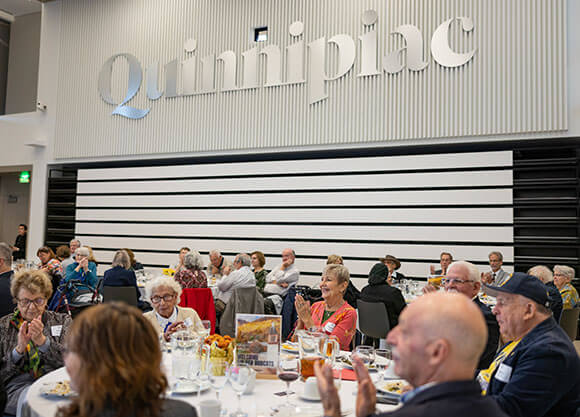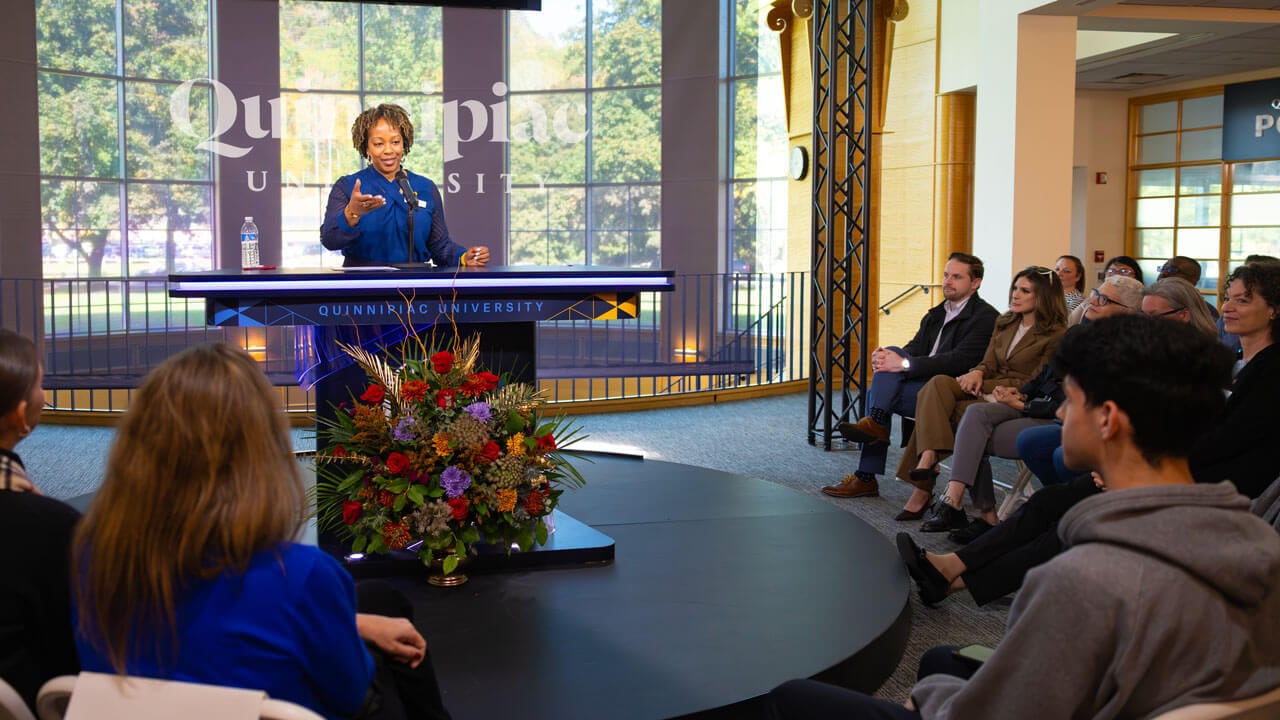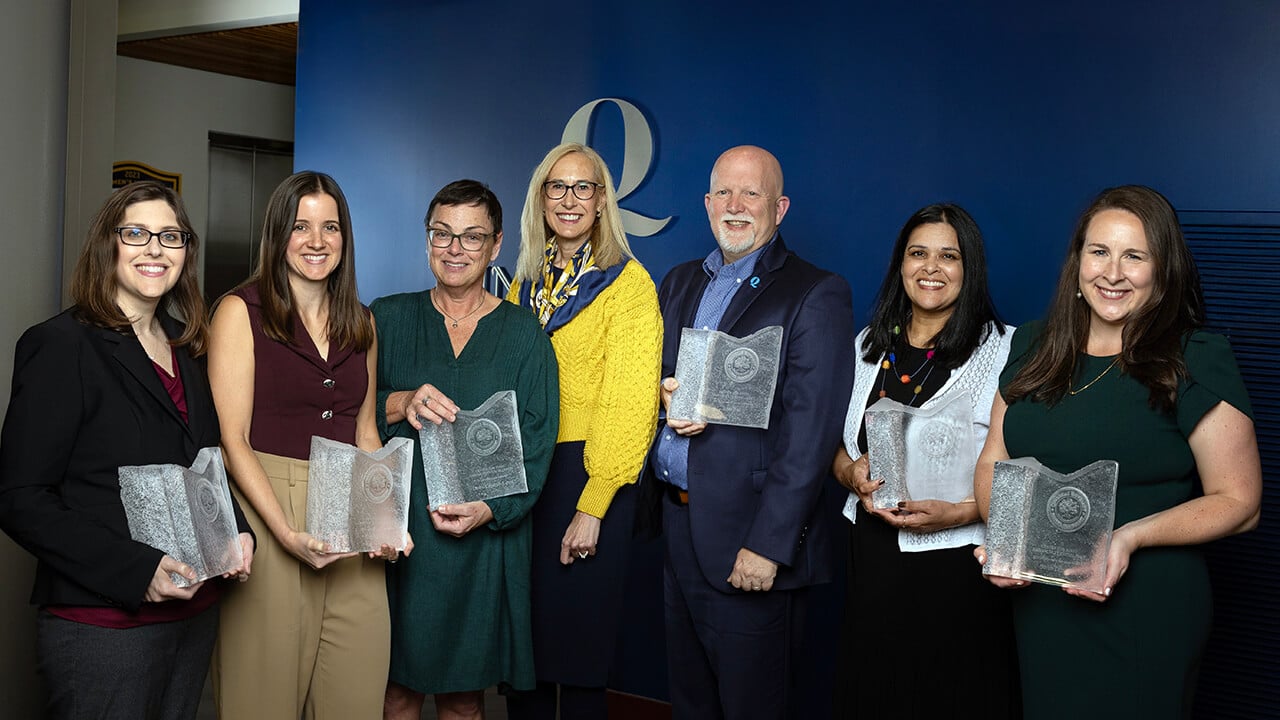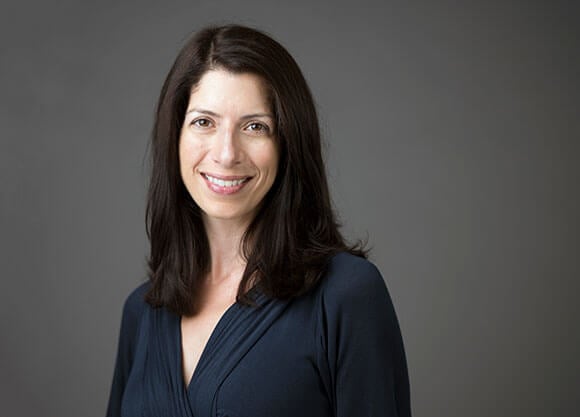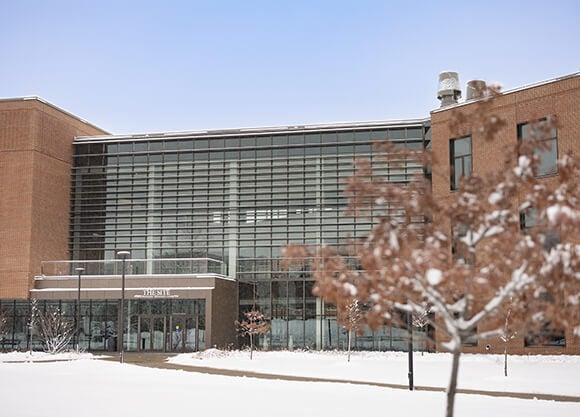
And, as she looked across this brand-new auditorium at The SITE, with rows and rows of faces matching her enthusiasm, it was clear that Thursday’s First-Year Move-In had made a lasting impression on Hardin.
“I saw something beyond coordination. I saw transformation — the way you all turned a moment of transition into a moment of welcome, the way you turned tasks into gestures of care,” Hardin said.
“That instinct to transform — not just to respond but to reimagine, and always for the better — isn’t just something we bring to move-in day,” Hardin said. “It’s something we bring to what we do and who we are. That’s what drew me to this university. And now, it’s something for us to marshal and bring to the future of Quinnipiac.”
For Hardin, this momentum will fuel a community conversation about strategic visioning to draft the institution’s values, identity and purpose. The year-long process will serve as a roadmap to Quinnipiac’s next strategic plan.
“Strategic visioning isn’t just an exercise. It’s a moment of shared authorship,” she said. “It’s a chance for us to ask: Who are we right now? What do we stand for? What are the values that will carry us? And what do we want our future to be?”
This perspective, Hardin explained, requires a community to see beyond the present and to prepare for the future. To reinforce this view, Hardin quoted former Canadian Prime Minister Justin Trudeau: “The pace of change has never been this fast, yet it will never be this slow again.”
Higher education is at a crossroads, Hardin said flatly, only to add that Quinnipiac is up to the challenge.
“We need to make wise and smart decisions about our direction and investments in the future,” Hardin said. “They will test us. But our track record tells us we know how to look ahead and to exercise the discernment, focus and the courage to be competitive.”
Hardin pointed to Quinnipiac’s origin story as the Junior College of Commerce in New Haven. What began with 11 students in 1929 has evolved into a world-class institution with about 9,750 students and 70,000-plus alumni.
“What our founders knew to be true nearly a century ago remains just as true now: We may not control what confronts us, but we can control how we respond,” Hardin said. “Strategic visioning is our invitation to transform that future — together.”
“So, let’s bring our ideas. Let’s bring our energy. Let’s bring our butterflies — and together, we’ll get them to fly in formation,” she added. “Together, we’ll write the next great chapter of this great university.”
Bold, powerful thinking
For Provost Debra Liebowitz, Convocation was an opportunity to encourage bold, meaningful thinking.
“This is a moment of strategic visioning, and I want to echo what Marie said to help us think together about what the real work is, the real work at this moment,” Liebowitz said, while Hardin nodded and smiled in the front row.
“Because strategic visioning, as she said, isn’t about a point in time, and it isn't about the expert opinions,” Liebowitz added. “It's about courage and our willingness to ask and deal with the hard questions.”
Liebowitz said the moment and the technology demand a new way of connecting with students and preparing them for purposeful careers.
“It means producing students who can partner with AI effectively, critically and creatively,” Liebowitz said. “And, in fact, this is something that I am going to challenge us to do at scale before this class of students graduates. We must do that. It is imperative.”
She also challenged her colleagues to develop new and meaningful ways of instruction to best serve Quinnipiac’s students and help them make the world a better place for all.
“Can we construct educational experiences in and out of the classroom to help our graduates fully understand themselves as learners and what it means for learners,” Liebowitz said. “What if every Bobcat leaves here with a metacognitive awareness of how they learn best? Why they're learning? What they're learning — and how to keep learning long after graduation?
“What if they could do it, and we didn't just talk about lifelong learning as a moniker,” she added. “Wouldn't it mean that our grads would be sought after because they would approach all they do with purpose as opposed to simply checking off boxes? And I believe they would be a better position in this world of tremendous change to construct a life of purpose.”
Welcome, Class of 2029
Chief Experience Officer Tom Ellett said this year’s incoming class comes from 30 states and 19 countries. The centennial class, as it is known, drew a third of its students from Connecticut, followed by 22% from New York, 19% from Massachusetts and 12% from New Jersey.
By school, Ellett said, 26% each are enrolled in the School of Business and the School of Health Sciences, 20% are enrolled in the College of Arts & Sciences, 10% each are enrolled in the School of Communications, and the School of Nursing, and 8% are enrolled in the School of Computing & Engineering.
And among Quinnipiac’s new graduate class, there are 1,244 students, which is 5.2% higher than last year, with 65 percent studying on campus and 35 percent studying online.
“What a wonderful, thoughtful and committed group of students we have here,” Ellett said. “I am excited to welcome them and I hope you will join me in trying to help them unleash those gifts and talents here among our students each and every day.”
Honoring outstanding faculty and staff
During Convocation, Hardin also asked all the new faculty and staff who joined the university since last summer to stand and be recognized. When the applause died down, she also welcomed several new leaders to the Quinnipiac family:
-
Trenton Honda: dean of the School of Health Sciences
-
Dr. Lisa Coplit: interim dean of the Frank H. Netter MD School of Medicine after serving as senior associate dean and associate dean
-
Aaron Trump: general counsel
-
John Armendariz: vice president for inclusive excellence
As she prepared to announce the 2025 Center for Excellence winners, Hardin didn’t even try to contain her excitement: “I’m super excited! This is all new to me!” Perhaps best of all, she promised everyone in the room “they could all go crazy” after all of the winners were named — and the Bobcat community did just that.
Honorees For Excellence in Service to Students
-
John Bau: assistant dean for student experience and career development, School of Engineering
-
Christie Soltys: assistant director, academic development and outreach, Learning Commons
-
Sarah Driscoll: director of international student services, Student Affairs
Honorees For Excellence in Teaching
-
Dawn Colomb-Lippa: senior instructor of biology and adjunct professor, physician assistant studies, College of Arts & Sciences
-
Emily McCave: professor of social work and associate chair of social work, School of Health Sciences
-
Nita Prasad: professor of history and concentration director, College of Arts & Sciences
“As we honor the very best of us, I want to take a moment to thank each of you — not just for being here today, but for all the work you’ve done leading up to this moment and for all the work you’ll do in the challenging year ahead,” Hardin said.
“We’ll face headwinds that test us, but we’ll also experience joy, celebration and success — because we’ll face it all together,” Hardin vowed. “Thank you so much. Go Bobcats!”
Stay in the Loop
Quinnipiac Today is your source for what's happening throughout #BobcatNation. Sign up for our weekly email newsletter to be among the first to know about news, events and members of our Bobcat family who are making a positive difference in our world.
Sign Up Now
